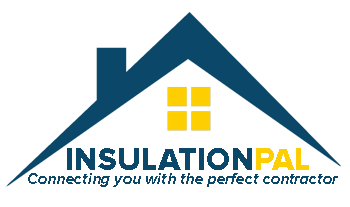Polyurethane Foam Insulation: Definition and What it is
Type of spray foam insulation made from polyurethane, offering high R-value and air sealing.
What is Polyurethane Foam Insulation?
Polyurethane foam insulation is the chemical foundation of most spray foam insulation products. Created by mixing polyol resin and isocyanate, polyurethane foam expands rapidly to fill cavities, creating an air-tight insulation barrier with excellent thermal resistance.
Polyurethane foam comes in two main types: closed-cell (high-density, rigid, moisture-resistant with R-6 to R-7 per inch) and open-cell (low-density, flexible, vapor-permeable with R-3.5 to R-3.8 per inch). The foam is applied as a liquid that expands 30-100 times its volume, filling gaps and creating a seamless insulation layer. Polyurethane foam also provides structural strengthening, sound dampening, and complete air sealing.
Polyurethane Foam Applications
- Closed-Cell Spray Foam: High-performance insulation for walls, roofs, and foundations
- Open-Cell Spray Foam: Cost-effective option for interior walls and attics
- Foam Board (Polyiso): Rigid panels for continuous insulation applications
- Two-Part Foam Kits: Small DIY projects for gaps and cracks
- Injection Foam: Retrofitting existing wall cavities
Best Practices for Polyurethane Foam
Professional installation is strongly recommended for spray foam—proper mixing ratios and application technique are critical for performance and safety. Choose closed-cell for moisture-prone areas, basements, and maximum R-value. Use open-cell for interior applications where moisture isn't a concern and cost is a priority. Ensure adequate ventilation during application and cure time. Verify contractors are certified and use quality materials. Foam must be covered with fire-rated material (typically drywall) per building codes.
Benefits of Polyurethane Foam Insulation
- Highest R-value per inch of any insulation (closed-cell)
- Complete air sealing—eliminates drafts and air leakage
- Moisture barrier (closed-cell) prevents water infiltration
- Adds structural strength to walls and roofs
- Fills irregular spaces and gaps conventional insulation misses
- Long-lasting—maintains performance for 50+ years
- Reduces energy bills by 30-50% compared to conventional insulation
Polyurethane Foam Insulation Cost
Polyurethane foam is the most expensive insulation option upfront but provides exceptional long-term value.
- Closed-cell spray foam: $1.50-$3.50 per board foot ($3-$7 per sq ft at 2" thickness)
- Open-cell spray foam: $0.75-$2.00 per board foot ($1.50-$4 per sq ft)
- Project size (larger projects have lower per-foot costs)
- Accessibility and application complexity
- Regional labor rates and contractor availability
- Energy savings typically offset costs within 3-7 years
How InsulationPal Can Help You
InsulationPal connects you with licensed, experienced insulation contractors. Compare multiple quotes to get the best value for your project.
Free Quotes: Get multiple competitive quotes from pre-screened contractors.
Expert Matching: We match you with pros experienced in polyurethane foam insulation.
Quality Assurance: Licensed, insured, and verified contractors.
Related Services and Resources
Explore all services we offer
Expert guides and tips on insulation
